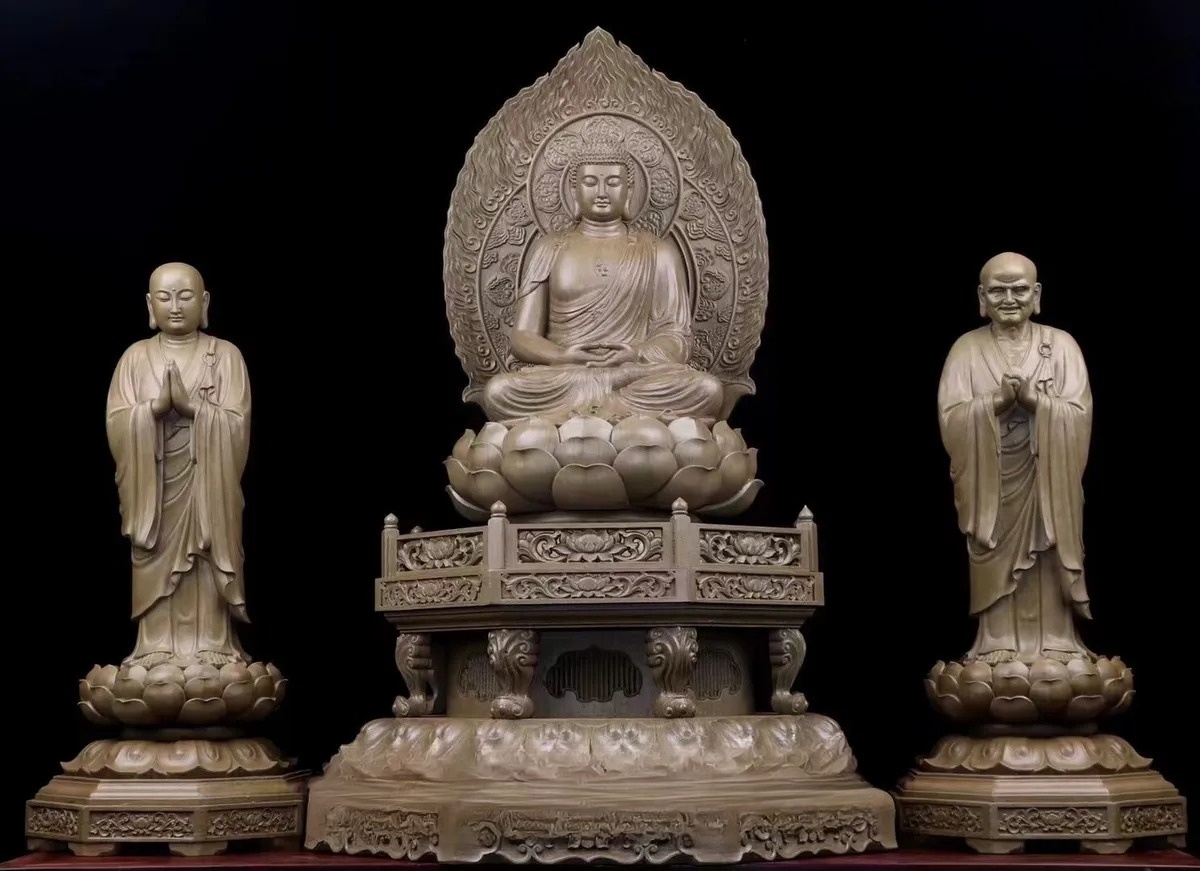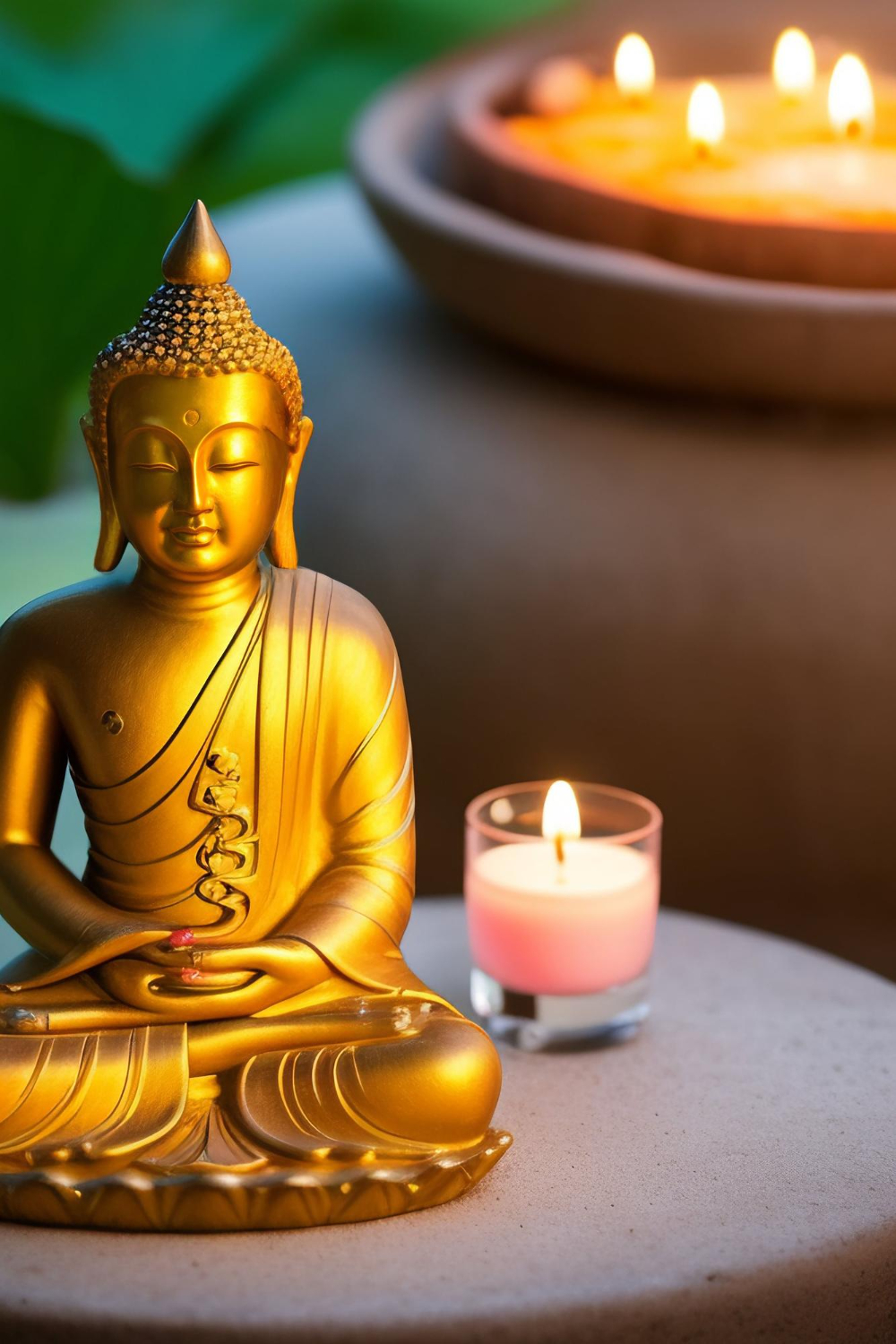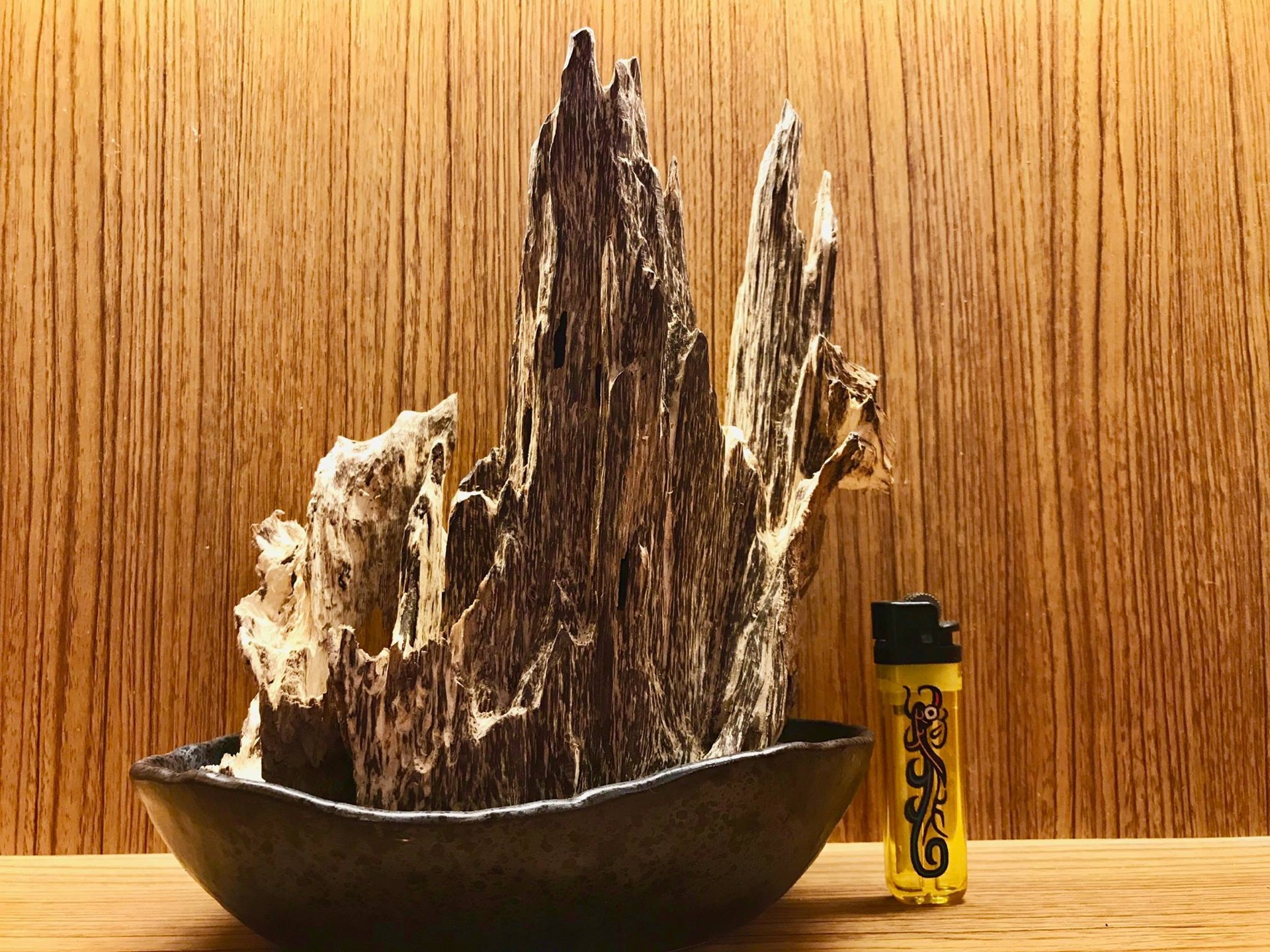Meaning and application of agarwood in Buddhism, Christianity and Islam
Agarwood in major world religions – its unique role and significance!
Agarwood is a ‘renowned fragrance’ celebrated by the entire world for various reasons. However, it is quite challenging to precisely describe the exquisite scent of agarwood due to its intricate aromatic composition. The aroma of agarwood is a harmonious blend of woody notes, deep forest undertones, the resinous essence of aged trees, pungent yet warm smoky nuances… In its deep fragrance, it appears to encompass the very essence and quintessence of the natural world. Agarwood is a precious gift bestowed upon humanity by nature, a rare marvel bearing profound spiritual meaning and value in numerous different religions, especially in Buddhism, Christianity, and Islam.

1. When mentioning agarwood in Buddhism – the fragrance of Nirvana
For thousands of years, in the most revered scriptures of Buddhism, agarwood has been referenced as a precious and pure fragrance, the ‘scent from the heavens.’ It is a fragrance that can permeate all three realms and is beloved by celestial beings in the heavenly realms.
Buddhist monks and practitioners throughout history have had the habit of burning agarwood incense during meditation and contemplation. Agarwood, at this time, functions as an effective spiritual practice, bringing tranquility, serenity, opening the mind’s eye, refining the senses, and assisting Buddhist disciples in quickly entering a state of Nirvana.

Agarwood is also crafted into prayer beads, which monks carry with them during their travels, meditation, and recitation of scriptures. These prayer beads typically consist of 108 beads, symbolizing the 108 defilements to be eliminated in the worldly realm. With each bead counted during the recitation, the warmth from the hand infuses the agarwood, intensifying its fragrance, creating a solemn and serene atmosphere for monks to fully devote themselves to the path of Enlightenment.

In the Milindapañha, agarwood is praised for possessing three rare qualities that parallel the three attributes of Nirvana. These qualities are being hard to attain, having an incomparable exquisite fragrance, and being extolled by virtuous individuals. Therefore, agarwood is often referred to as the ‘Fragrance of Nirvana.’ In Buddhism, Nirvana represents a state of spiritual tranquility, serenity, clarity, free from desires, delusions, and the cessation of suffering.
In addition to its pure aroma, agarwood also serves the purpose of purifying space, dispelling negative energy, and contributing to the creation of a sacred atmosphere during significant ceremonies such as recitations, illumination rituals, blessings, and bathing rituals. This practice has endured to this day, becoming a cherished tradition in the cultural and religious heritage of monks and Buddhist practitioners.
2. Agarwood in Christianity – the fragrance of the Lord
Not only does agarwood hold sacred meaning and value in Buddhism, but for those who follow the Christian faith, it also maintains an immensely significant place. Agarwood is believed to be the tree planted by Jehovah, as mentioned in the Book of Numbers (the fourth book of the Bible):
“Like the valleys they have extended a long way,
Like gardens by the river,
Like aloes* that Jehovah has planted,
Like cedars by the waters. (Numbers 24:5,6)”
(*aloes: another name of agarwood)
Furthermore, agarwood appears multiple times in both the Old and New Testaments and is praised as one of the most precious and fragrant spices.
In particular, in the New Testament, the Gospel of John (20: 39, Verse 40) describes that after Jesus endured the crucifixion on the Holy Cross to redeem humanity, His holy body was anointed with a mixture of fragrant resin and agarwood. Catholic history records that the incense ceremony was introduced into the Easter Vigil in Jerusalem in the late 4th century. When agarwood is burned, its pure and sacred fragrance fills the space, enhancing the atmosphere of holiness during the religious ceremonies.

For the faithful followers of God, agarwood embodies three profound values. Firstly, its gentle and soothing fragrance can help them release and calm dark emotions and tensions, returning them to a state of spiritual serenity and gentleness, preparing them for prayer and contemplation. Secondly, agarwood’s aroma possesses the ability to awaken the mind, deepening the connection between the body and the soul, between individuals and their faith. In other words, agarwood serves as a means to bring God’s faithful followers closer to their sacred Lord. Agarwood also acts as a purifying fragrance for the body and the soul, warding off negativity and providing protection, making them feel pure and sanctified, ultimately beautifying the hearts of those who seek to please God.
3. Agarwood in Islam – the treasure of Muslims
Agarwood is mentioned several times in a collection of prophecies and teachings known as the Hadith, authored by the Prophet Muhammad, the founder of Islam. In these texts, it is stated that Prophet Muhammad not only had a fondness for and frequently used agarwood in rituals, but also regarded it as a healing treasure for various ailments. Abu Huraira, one of the companions of the Prophet Muhammad, even described Paradise as having an abundance of the fragrance of agarwood (refer to Volume 4, Book 55, Hadith 544).
Since then, Muslims have become accustomed to using agarwood in important ceremonies and within mosques, believing that agarwood helps bridge the gap between the physical and the spiritual worlds and is a fragrance beloved by the divine. Agarwood is also used to cleanse spaces, perfume homes, clothing, reflecting the heritage, tradition, and opulent lifestyle of many Middle Eastern families for thousands of years.
Furthermore, agarwood is a significant part of Muslim wedding customs due to its unique fragrance and cultural importance. During weddings, especially on the wedding night, the bride enters the ceremony carrying containers filled with burning agarwood chips. The aromatic smoke fills the space, creating a warm atmosphere symbolizing prayers for a beautiful future sent to the Almighty.

In addition to Buddhism, Christianity, and Islam, in various other major religions around the world, agarwood also plays a role as a pure “sacred fragrance” that helps believers purify their minds, enhance focus, elevate their spirits, and forge deeper connections with their Supreme Deity. This is why many people worldwide prefer to use agarwood as a gift to send to friends and loved ones. Agarwood holds a profound and cherished place in these religions, with people from all walks of life revering and esteeming it.

 Hotline: 0927 323 888
Hotline: 0927 323 888











